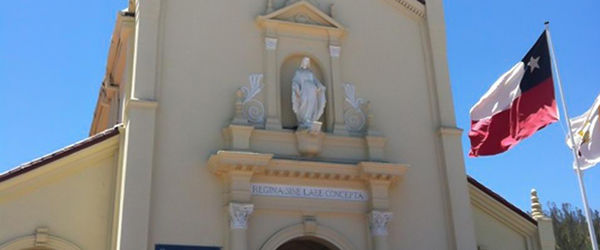The narrative emphasizes the choices we make in life, consequences, the fidelity of friendship, love and forgiveness. The title, “There Be Dragons” comes from ancient maps of the world that described unknown regions, thus “Here be dragons.” Joffe’s dragons, however, are spiritual, and all of us must face them.There are some luminous moments in the film. I particularly liked the one where Josemaria and Manolo visit the chocolate factory owned by Mr. Escriva. The manager asks the boys to analyze the flavor of the chocolate and explains that “patience, skill, hard work and love” are needed to experience the divine essence of chocolate. These traits impress Josemaria and he makes them part of “The Work,” or “Opus Dei” as his mother translates it, that will be his life.Another is Josemaria explaining the persecution of the Church during the Spanish Civil War. When some of the young men in “The Work” want to start a pro-Christian crusade in the midst of the fighting, Josemaria stops them, explaining that it will only add fuel to the fight. One young man asks why people hate the Church so much; Josemaria replies, “Because they see us as part of a system that causes them pain.” The Spanish Civil War remains a very complex time in European history and I think this idea is valid.Other than the extreme violence, which I found jarring, there is no controversy, such as that generated by “The Da Vinci Code” (2006) because there is simply not enough information about “Opus Dei” to talk about. To me, Opus Dei as an organization is Christian, yes, but its mission as expressed here is vague and non- specific. After all, we are all called to holiness in our daily lives, so what is unique about Opus Dei? The film does not explore this dimension. Two of the producers for the film belong to Opus Dei and an Opus Dei priest served as the consultant. Therefore, I think those who know Opus Dei probably won’t learn anything new, but neither will those of us who do not belong to the institute.The bottom line is that Josemaria Escriva lived in extraordinary times and founded a movement, a secular institute that was approved by the church in 1950, to teach people the holiness of ordinary life and work. Blessed John Paul II established Opus Dei as a Personal Prelature in 1982, naming a bishop to govern the institute no matter where members live and work. St. Josemaria strove for holiness in prayer and through good works, and in one discreet scene is shown practicing self-flagellation while praying. The film’s cinematography is gorgeous (main photography was done in Spain and Argentina), and the historic scenes and reenactments appear authentic. The visual motifs, especially the religious and spiritual, are integrated well into the story.At the end, Manolo holds a rosary that Josemaria had given him long ago. “I still have the rosary you gave me” he says, clutching the beads tightly in his gnarled hands, “but I have never prayed it.” His very prayer, the look on his face, and the tone of his voice, belie the faith, however weak, that he reveals from the depths of his tortured soul.“There Be Dragons” asks viewers to believe Manolo’s extreme violence and darkness of soul in contrast to Josemaria’s rather sweet persona. Robert, Manolo’s journalist-son, is asked to go to the very limits of a human being’s capacity to forgive. I can understand why Joffe had to throw the weight of the story on Manolo and Robert; to tell Escriva’s inner story outright would be almost impossible in a feature film without Manolo’s extreme behavior. To me, the story stretches credibility somewhat. However, the themes of forgiveness, love and the fidelity of friendship, can inspire.

